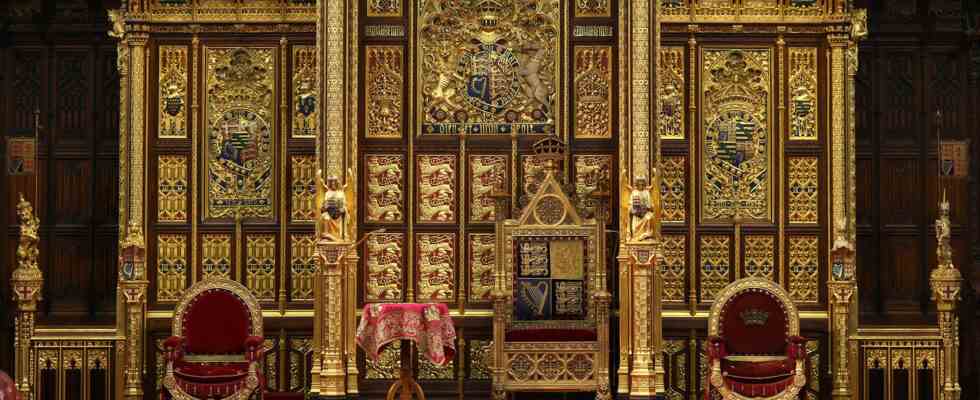background
Status: 09/10/2022 2:01 p.m
The role of the British monarch is primarily ceremonial. He should therefore not interfere in political affairs. However, as head of state, he also has some constitutional powers. An overview.
role in Parliament
Parliament is the highest legislative body in the United Kingdom and consists of the House of Commons, the House of Lords and the Crown, i.e. the royal house. The royal house is the oldest part of the British system of government, but over the centuries its power has been significantly eroded and is now largely limited to rituals.
establishment of the government
The day after a parliamentary election, the respective monarch asks the leader of the party that has won the most seats in the lower house to form a government.
Opening and dissolution of Parliament
Every year, the monarch opens the session of parliament in a magnificent ceremony and reads out the government program for the next twelve months. It begins with a procession by the King or Queen from Buckingham Palace to Houses of Parliament.
There the monarch goes to the House of Lords. An official known as the Black Rod is dispatched to summon the members of the House of Commons and the door is slammed in the monarch’s face as a symbol of Parliament’s independence from the monarchy. Before a general election, the monarch formally dissolves parliament.
royal approval
After both chambers of parliament have approved a bill, it is passed on to the monarch, who approves it and thus puts it into effect.
Theoretically, the respective king or queen could refuse to consent. Queen Anne last exercised this privilege in 1708.
Prime Minister’s confidant
During her seven decades on the throne, Queen Elizabeth II held weekly meetings with all prime ministers, allowing them to share their plans and concerns with her.
“They tell me what’s going on and if they’re having problems, and sometimes I can help in some way,” the Queen said in a 1992 documentary about her role in the meetings. “You know I’m impartial and it feels good to be something of a sponge.”
Appointing Lords and Knights
The Regent can appoint Lords as Members of the House of Lords but only does so in consultation with the Government.
In addition, the monarch knighted deserving citizens. For this purpose, the government submits a list of nominees to him every year.
Intervention in constitutional crises
In the event of “serious constitutional crises”, the British monarch can act against the advice of members of the government. However, this has never happened in modern times.
church leader
As the secular head of the Anglican Church, the monarch can appoint bishops and archbishops.
However, this only takes place in coordination with a church committee.
Source: AP

